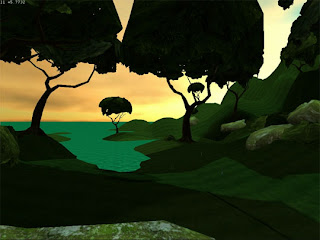
Love can consign us to hell or to paradise, but it always takes us somewhere. ~ Paul Coelho After reading Ben Okri’s In Arcadia , I kept on thinking about the writer’s vision of Arcadia. It’s true that the place did exist (as history has proven), and people from all walks of life since antiquity have discussed, imagined, explored, debated, and interpreted this entity called ‘Arcadia’ but ideally, it can only exist in one’s heart. All six characters in this novel have different ideas of what is Arcadia and in the end, the only similarity between these conflicting notions is, Arcadia is just an imaginary idyllic paradise. On earth. You either see it or you don’t. You either feel it or you don’t. Hmm. Nice paradoxes. The minute I finished reading this novel, I began to question: “What is my Arcadia?” I don’t think my definition of Arcadia is any different from Jute’s definition (Jute is one of the characters). Jute thinks that her work is Arcadia. To have work to do, work that you like ...



